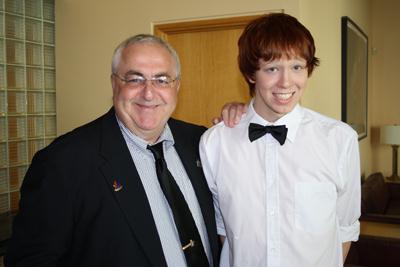For a full eight hours on May 22, a total of 38 speakers addressed a packed meeting of the Ontario standing committee on social policy in Ottawa, an all-party committee charged with getting feedback on bills 13 and 14: two competing, and very different, pieces of anti-bullying legislation.
Bill 13 aims to give school officials the power to better deal with bullies. The bill makes a point of explicitly naming groups that tend to be targeted in schools. Meanwhile, Bill 14 aims to avoid defining any categories of identity, seeing the naming of specific groups — such as queer or trans youth — as a way of weakening rather than strengthening the proposed legislation.
Inflammatory claims have been made against supporters of Bill 13, including the charge that they are hijacking the process by insisting on specific language. This charge is being levelled despite recent Egale research that found that up to two-thirds of all queer and trans youth feel unsafe at school.
“Despite attempts by fundamentalist groups to gloss over the specific torment that LGBT youth experience every day, there is clear evidence that our youth need to be supported and protected by the educational system,” said Ariel Troster, an Ottawa resident and queer mother-to-be who spoke at the hearing on Tuesday. “I don’t want to have to make a presentation of this nature in 14 years when our own daughter enters high school.”
Liberal MPP Yasir Naqvi agrees.
“There is no denying that there is bullying taking place in our schools based on sexual orientation and gender,” says Naqvi. “If we don’t address that head-on we are not getting at the real problems. That’s what Bill 13 is doing.”
While the expected arguments were presented about the erosion of religious freedoms and the potentially negative effects on religious education that could come to pass if Bill 13 were adopted, there were certainly supporters of the bill in the Christian camp.
“As an educator, and particularly as a Catholic educator, I believe that no one is unworthy of respect, dignity and love,” said Elaine McMahon, who is the president of the local chapter of the Ontario English Catholic Teachers Association and a supporter of Bill 13. “It matters not what we call the [gay-straight alliances], what matters is we have them.”
The naming of these groups — or rather the notion of defending a student’s right to choose a name that includes the words gay or rainbow, for example — has been one of the more contentious issues at play. Even for supporters of the bill.
“It’s my understanding that Bill 13 contains a few problematic gaps in language, including the exclusion of the terms gender identity, gender expression and a lack of recognition of the problems associated with biphobia and transphobia,” said Troster at the hearing. “It also doesn’t explicitly state that students should be specifically permitted to name their groups gay-straight alliances or any other title of their choosing. This is an omission that needs to be corrected . . . That being said, I am here to tell you why I support Bill 13 and want to see it implemented without delay.”
The subject of countering bullying and creating safe spaces is a raw one for Ottawa. The city has been in the shadow of Jamie Hubley’s suicide since the gay youth took his own life in October, at the age of 15. His death came after years of homophobic bullying, a long struggle with depression and a thwarted attempt to establish a rainbow alliance in his school. His story reminds us of the clear and present dangers we’re facing: namely, the potential loss of life.
Nonetheless, the meeting was heavy on naysayers. Bigotry and homophobic ignorance were rampant in the day’s submissions.
Dawn Moore, who made a submission to the standing committee on behalf of the Ten Oaks Project, believes that opponents of Bill 13 outnumbered supporters by about five to one.
“There weren’t a lot of friends in the room,” says Moore, who attended the public hearing with her teenaged son and six-month-old baby. “Walking into that room felt like walking backwards in time 30 years, in terms of the ideas that were being presented. If Bill 13 doesn’t go through, it sends the message that the adults in charge are not interested in being caring and accepting and inclusive but, rather, are interested in shutting down and silencing people. It’s the grownup version of the same [bullying] behaviour.”
Moore questioned whether her kids should have been present to hear the onslaught of negative, hurtful and homophobic messages that were presented as part of Tuesday’s hearing but concluded that it’s best to model courage in the face of hate.
“I always feel a bit mama-bearish taking either one of my kids into an environment that I know isn’t going to be accepting of our family, but I think it’s important that they see their mother and other allies and friends fighting for what’s right. I want them to see that there are people working for change.”
Bill 13 has now passed second reading, but it remains to be seen whether the bill will be made into law before the Ontario legislature breaks for the summer.

 Why you can trust Xtra
Why you can trust Xtra


